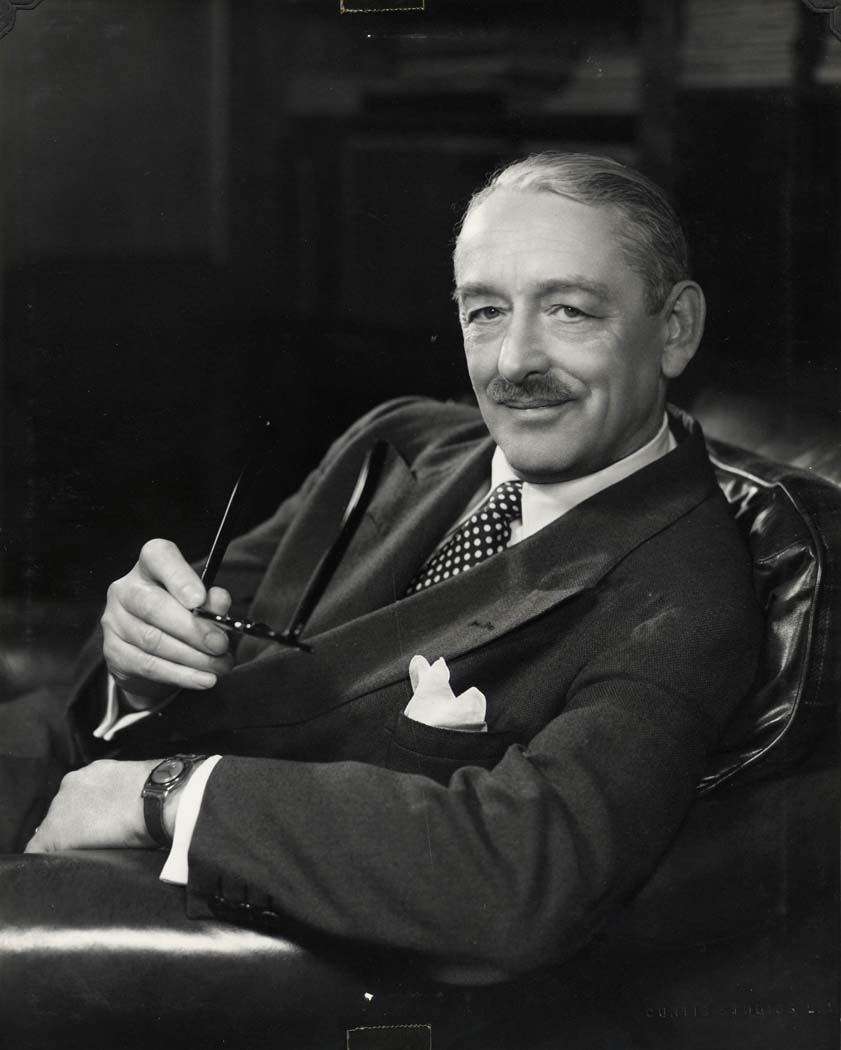Get Today in Masonic History into your Inbox. Sign up today for one of our email lists!
Need an article for your Trestleboard/Newsletter see our Use Policy
Elias Manchester Boddy is Born

Today in Masonic History Elias Manchester Boddy is born in 1891.
Elias Manchester Boddy was an American publisher.
Boddy was born on November 1st, 1891 in a log cabin on homestead near Lake Tapps, Washington. He grew up in poverty and it has been reported he walked 5 miles a day to and from school. Later he attended Washington State College and the University of Montana. Prior to World War I, Boddy had a variety of jobs ranging from ditch digger to New York City Subway guard. Eventually he became an Encyclopedia Britannica salesman in New York City. In the position he convinced poor families to bond together to buy the volumes. His area expanded and in Massachusetts he avoided a ban on salesmen on campus by hiring college students as agents.
When World War I started, Boddy served as a second lieutenant. In the Argonne he was gassed and was sent home disabled. After many months in the hospital he returned to his role as a salesmen. This time selling back issues of Current History magazine in a bound volume titled The European War.
Eventually Boddy moved west when he started having health problems. Once in Los Angeles he established a book publishing company. He sold copies of Mexican Year Book and other titles for the Los Angeles Times. For $50 he purchased a failing magazine called Smiles which he convinced the Commercial Board of Los Angels to use the magazine as it's house organ, a publication created specifically for it's internal use. This established Boddy as a publisher.
In 1926, Boddy was hired by the Los Angeles Illustrated Daily News as it's editor. The newspaper was failing when Boddy came on board and the following year was in bankruptcy. Boddy convinced the stockholder committee and a federal judge to allow him to take over the paper. Within a few years it was immensely profitable. Boddy did this by turning away from the previous publisher's philosophy of emphasizing positive news. Instead he Boddy went after the corruption of the city including police corruption, gambling and prostitution. This drew the anger of Police Chief James E. Davis who attempted to silence Boddy and his newspaper by using an obscure law which made it illegal for a general circulation newspaper to publish race results. The charges against Boddy never went to trial and Boddy continued to cover the corruption of the city.
Boddy was a Republican and supported Herbert Hoover in 1932. He believed the election of Franklin D. Roosevelt was a "terrible mistake." Still Boddy saw Roosevelt's New Deal had merit, lifting the country out of the Depression. Boddy's paper was the only one to endorse Roosevelt and give him balanced coverage. At the same time the paper gave considerable coverage to Technocracy, the selection of those with technical knowledge to be the leaders of the government. The Daily News also gave space to other less plans including Upton Sinclair's controversial End Poverty in California (EPIC) campaign, which called for a massive public works program, sweeping tax reform, and guaranteed pensions.
In 1936, Boddy purchased a parcel of land in La Canada, California, just north of Los Angeles. There he pursued some his interests including horticulture, ranching and plant science. In 1942 he purchased Mission Nursery of San Gabriel, along with it's stock, from Yoshimura family, who were interned. He named his estate Rancho de Descanso, which translates as “Ranch of Restfulness (or Repose).”
In 1941, when a Firestone Tire & Rubber Company factory burned in Massachusetts, Boddy went on the radio every night encouraging listeners to turn in old tires and other rubber scraps. He also sent a memo to President Roosevelt suggesting a plan to get rubber out of Japanese controlled Malaya. Roosevelt responded several weeks later thanking Boddy for the suggestion, stating a plan was underway. It is unclear if any such plan was ever executed, regardless in 1950 a film was made called Malaya in which the character John Manchester, which was based on Boddy, was played by Lionel Barrymore.
After World War II, Boddy lost interest in the paper and eventually turned over daily operations to someone else. The paper dwindled to the point it lost $75,000 a month. The paper folded and was purchased by another publishing company.
In 1950, Boddy entered politics when United States Representative Helen Douglas challenged sitting United States Senator Sheridan Downey for the senatorial Democratic nomination. Downey bowed out after the beginning of the campaign citing illness. Boddy stepped in, despite having previously stated he had no interest in running for elected office. Because of his late start, Boddy struggled to get any traction in the campaign until the end when he labeled Douglas the "Pink Lady" implying she was tied to Communism. Boddy lost the primary and Douglas came in second, although she secured the nomination because her Republican rival Richard Nixon, had registered for both the Republican and Democratic primaries. Nixon won the Democratic primary with more than a million votes and later won the general election utilizing Boddy's "Pink Lady" strategy.
Boddy passed away on May 12th, 1967. Rancho de Descanso was deeded to Los Angeles County and is now open to the public as Descanso Gardens.
Boddy was a member of Craftsmen Lodge No. 559 in Los Angeles, California.

